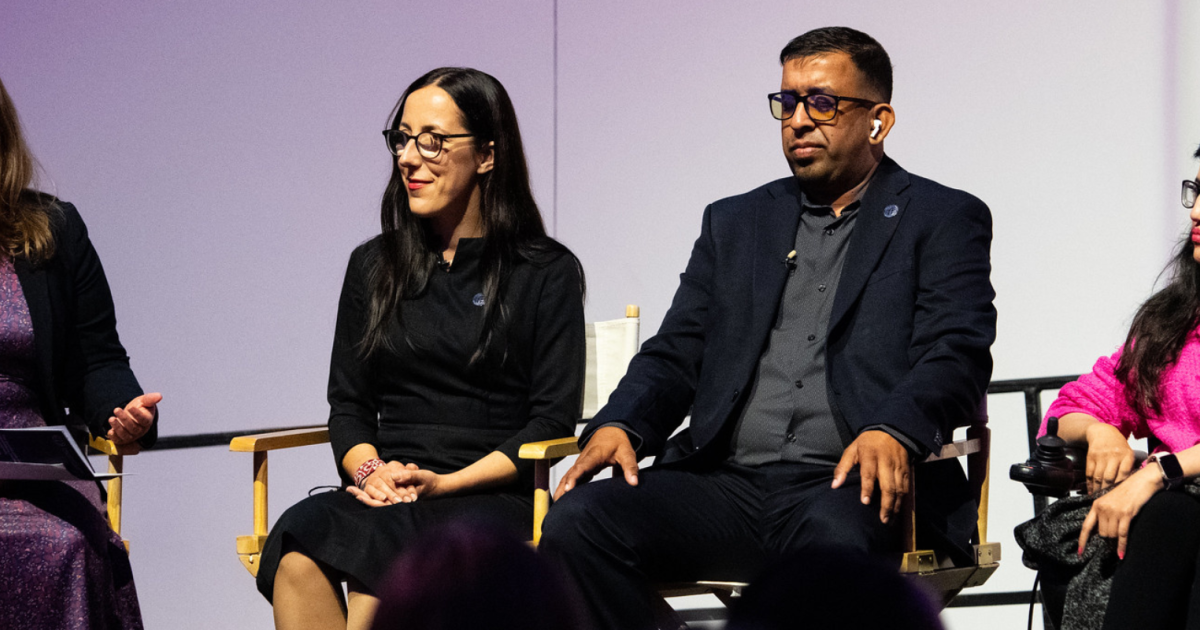Air raid sirens ring out every day across Ukraine, signaling a part of everyday life for Ukrainians as they rush down stairs to basements or walk miles to reach shelters or take refuge, as millions have done.
But people with disabilities who cannot hear these signals, access bomb shelters, or cross borders or reach shelters continue to be left behind.
One woman’s family was all visually impaired and had no idea where the entrance to the basement of their apartment was.
When the building owner instructed residents to take shelter there, their requests for directions were ignored.
This is just one example of the inaccessibility of shelters to people with disabilities: In 2023, the Ministry of Interior of Ukraine found that nearly 900 of more than 4,800 shelters were locked or in disrepair. The majority of the remaining shelters are inaccessible to people with disabilities.
Speaking at the World Economic Forum in Davos last week, President Volodymyr Zelensky promoted his Ukrainian peace plan and called on allies to remain committed to “building, rebuilding and restoring life” in Ukraine.
As Ukrainian cities are now rebuilding, it is important to recognise that there is no one-size-fits-all strategy for people with disabilities to survive and recover from war.
For Ukraine to prevail and thrive as an inclusive democracy, we must prioritize those who are currently left behind.
Read the full story at EuroNews.
This article was first published by EuroNews on January 19, 2024.

